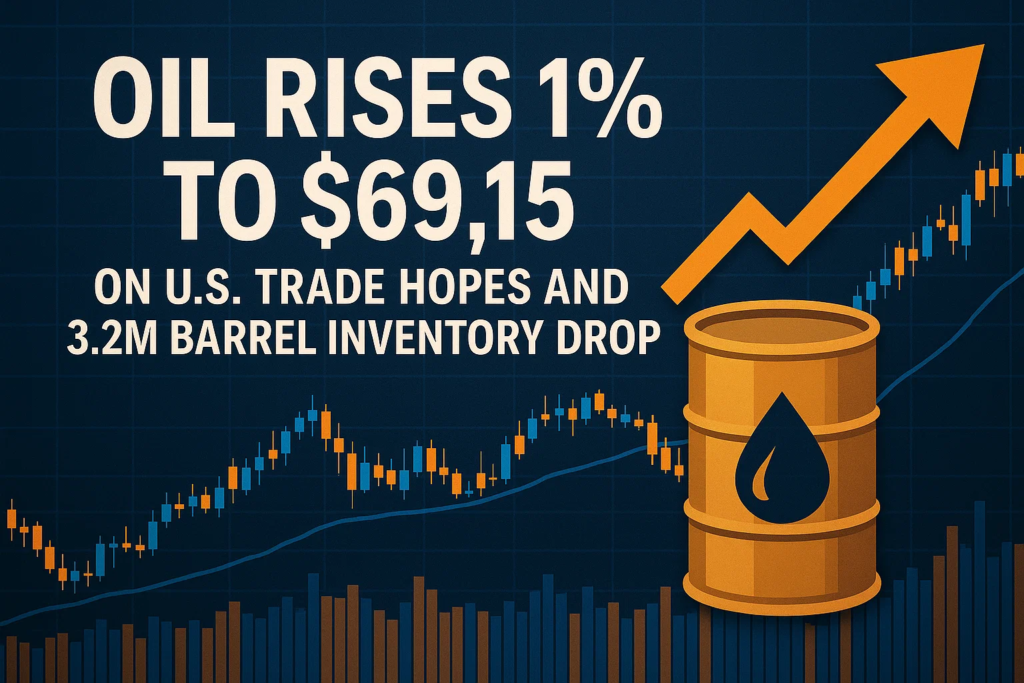Oil prices rose Thursday as investor sentiment improved on the back of positive U.S. trade developments and a larger-than-expected decline in American crude stockpiles.
Brent crude climbed $0.64 (0.9%) to $69.15 per barrel, while West Texas Intermediate (WTI) advanced $0.68 (1%) to $65.93 by 06:30 GMT. The rebound comes after a largely muted session on Wednesday, during which markets awaited signals from U.S.–EU trade talks.
Investor focus remains fixed on the U.S.-Japan tariff agreement, which removed the threat of new auto import duties and included $550 billion in U.S.-bound investment. The deal is being viewed as a potential template for other trade pacts, particularly as negotiations between Washington and Brussels accelerate.
Crude inventory data also supported prices. The U.S. Energy Information Administration (EIA) reported a draw of 3.2 million barrels, bringing total stockpiles to 419 million barrels—double the forecast of 1.6 million.
Fuel Demand Stays Strong Despite Distillate Build
Beyond crude, U.S. fuel data painted a picture of resilient summer demand, despite concerns about macroeconomic uncertainty and global price pressures.
- Gasoline inventories fell by 1.7 million barrels to 231.1 million barrels, nearly twice the expected 908,000-barrel draw.
- Distillate stockpiles (diesel and heating oil) rose by 2.9 million barrels, reaching 109.9 million—still near their lowest seasonal level since 1996, according to ANZ analysts.
“This suggests demand over the northern hemisphere summer has been relatively strong,” ANZ noted in a report, adding that consumption trends are supporting refined product markets despite supply disruptions.
With WTI trading within a $60–$70 range, analysts see limited upside without a broader resolution in ongoing trade and geopolitical uncertainties.
Geopolitics Cloud Oil Supply Outlook
While market sentiment received a lift from trade progress, geopolitical risks remain a significant wildcard.
Russia and Ukraine resumed peace talks in Istanbul, focusing on prisoner swaps. However, the two sides remain at odds over ceasefire conditions and diplomatic timelines.
In parallel, Black Sea oil exports were temporarily halted due to regulatory delays, affecting shipments from Kazakhstan via routes involving U.S. energy firms. The disruption added a layer of uncertainty to regional supply chains.
Additional geopolitical developments:
- EU passed its 18th sanctions package, reducing the price cap on Russian crude
- U.S. Energy Secretary hinted at new sanctions on Russian oil exports
As trade negotiations evolve and inventories tighten, the outlook for oil remains supported—but heavily sensitive to policy shifts and geopolitical flashpoints.


